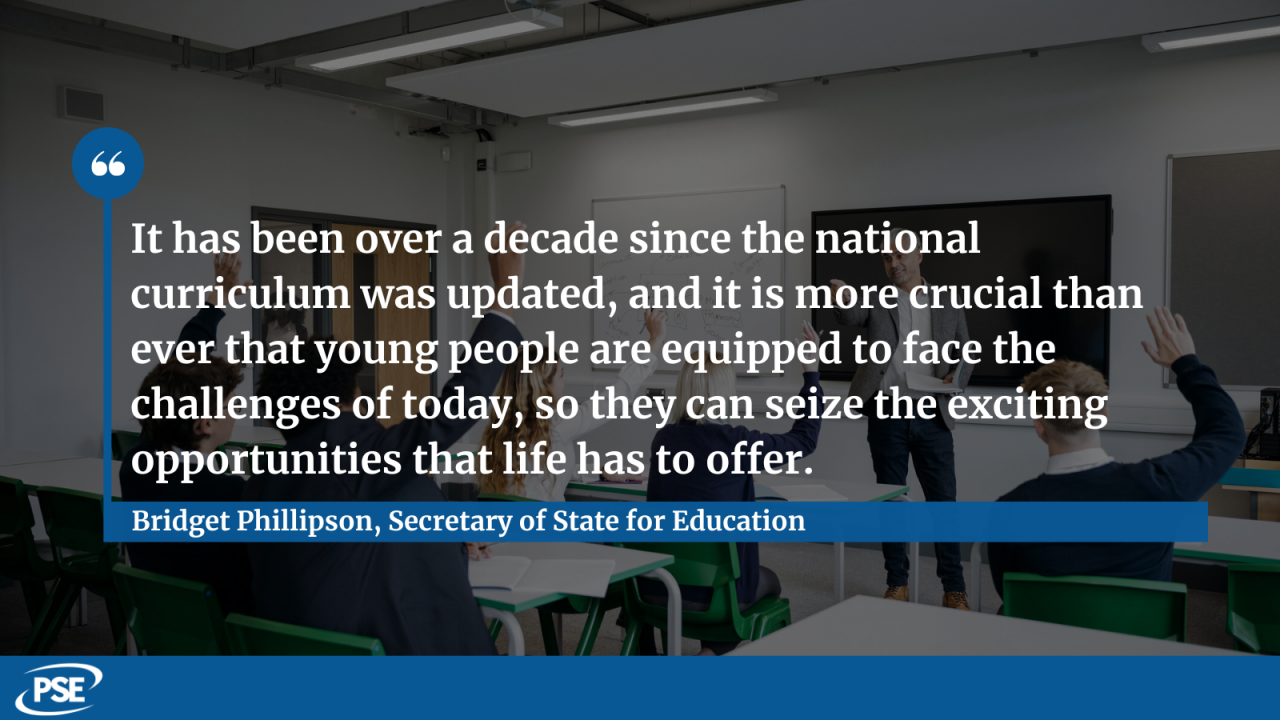Children and young people will leave school better prepared for the modern world under sweeping reforms to the national curriculum, announced today in response to Professor Becky Francis’s Curriculum and Assessment Review.
The changes, part of the government’s Plan for Change, aim to raise standards and ensure every pupil has a solid foundation in reading, science, and maths, alongside the skills needed for life and work in the next decade.
To tackle falling literacy standards, the government will introduce a statutory reading test in Year 8, as well as a strengthened writing assessment in Year 6
These measures will help identify pupils needing extra support and stretch those with untapped potential – especially during the “lost years” at the start of secondary school.
For the first time, primary pupils will be taught how to spot fake news and misinformation, the fundamentals of money and financial literacy, and citizenship education, including law, rights, democracy, and climate awareness.
These additions reflect the reality that children are now consumers and digital citizens from a young age.
Key reforms include a move to give arts GCSEs equal status to humanities and languages, alongside a new core enrichment entitlement that will cover arts and culture, civic engagement, life skills, and sport and physical activity.
Schools will be expected to offer triple science GCSE as standard, and the government is exploring a new data science and AI qualification for 16–18-year-olds.
A new oracy framework will help pupils become confident speakers, supported by practical teaching strategies. The curriculum will also be digital and machine-readable, making it easier for teachers to plan and sequence lessons.
The reforms will:
- Remove the EBacc and reform Progress 8 to encourage broader subject choices
- Introduce enrichment benchmarks, with Ofsted assessing delivery and a new school profile service for parents
Bridget Phillipson, Secretary of State for Education, said:
“It has been over a decade since the national curriculum was updated, and it is more crucial than ever that young people are equipped to face the challenges of today, so they can seize the exciting opportunities that life has to offer.
“The path to our country’s renewal runs through our schools: they must be an epicentre of the strongest possible foundations of knowledge, and the skills to excel in the modern world.
“From the fundamentals of reading to the present danger of spotting fake news, as part of our Plan for Change, these landmark reforms will help young people step boldly into the future, with the knowledge to achieve and the skills to thrive as the world around us continues to rapidly evolve.”

The final curriculum will be published by spring 2027, with first teaching from September 2028, giving schools four terms to prepare.
Image credit: iStock



















